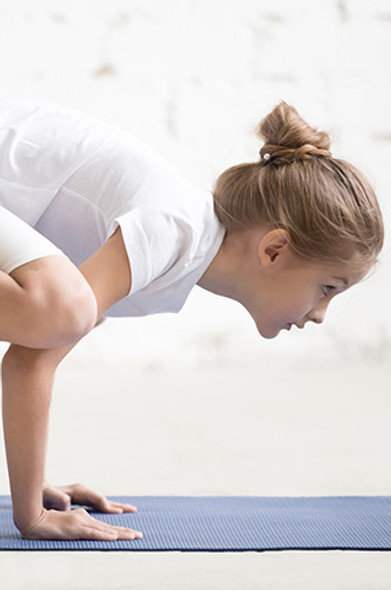
Shweta's passion for spirituality and love for children culminated into her project, Damara Kids, an endeavor focused on teaching mindfulness and meditation to children. With a deep understanding of the importance of these practices in promoting well-being, Shweta has developed a curriculum that is both engaging and effective for children. Through Damara Kids, she has helped children develop the skills they need to cope with stress and anxiety, build self-confidence, and cultivate a greater sense of compassion and empathy towards themselves and others. By instilling these valuable life skills in young minds, Shweta is making a positive impact on the next generation and helping to create a brighter future for all.
Mission and Vision
Damara Kids' Mission Statement: At Damara Kids, we are committed to providing a nurturing and holistic learning environment that empowers children to thrive academically, socially, and emotionally. Our mission is to equip children with mindfulness and yoga techniques that help them achieve self-awareness, self-regulation, and focus, thus enabling them to become resilient, creative, and successful leaders in the 21st century.
Damara Kids' Vision Statement: Our vision at Damara Kids is to revolutionize the way children learn by integrating mindfulness and yoga techniques into their daily routine. We aim to inspire a generation of children who are equipped with the necessary tools to navigate the complex challenges of the 21st century with confidence, creativity, and a sense of purpose. Our goal is to cultivate a community of learners who are passionate about learning, helping others, and making a positive impact on the world.
Improved performance in the Tower of London test following yoga. Indian Journal of Physiological Pharmacology, 45, 351-354. This paper reports on an experiment conducted to compare the influence of several weeks of yoga training with several weeks of nonyoge-based physical training. Children randomly assigned to the yoge condition performed better on a standard problem-solving test used to assess cognitive function.
"Schools have also begun experimenting with the practice and discovering that its techniques can help its students. When a school in New Haven, Connecticut, required yoga and meditation classes three times a week for its incoming freshman, studies found that after each class, students had significantly reduced levels of cortisol, a stress hormone, in their bodies. In San Francisco, schools that participated in Quiet Time, a Transcendental Meditation program, had twice as many students score proficient in English on the California Achievement Test then in similer schools where the program didn't exist. Visitacion Valley Middle School specifically reduced suspensions by 45 percent during the program's first year. Attendance rates climbed to 98 percent, grade point averages improved, and the school recorded the highest happiness levels in San Francisco on the annual California Healthy Kids Survey. Other studies have shown that mindfulness education programs improved students' self-control, attentiveness and respect for other classmates, enhanced the school climate, and improved teachers' moods" (The Atlantic).

Benefits of Yoga and Mindfulness for Children
Plenty of research has been done on mindfulness meditation and yoga techniques. The best predictor of the validity of any research is the meta-analysis. Meta-analysis is a study of multiple experiments/trials in a certain area and if the cumulative results indicate that a certain technique solves a certain problem, then it is considered solid evidence. The meta-analysis in [1] proves beyond doubt that meditation can reduce psychological stress, anxiety and improve overall mental and physical well-being.
Several experiments have been conducted on yoga techniques as well. One of those experiments have been listed in [2] which compares the influence of several weeks of yoga training with several weeks of non yoga-based physical training and it shows children randomly assigned to the yoga condition performed better on a standard problem-solving test used to assess cognitive function.
Spiritual
Promotes spiritual wellbeing
Enhances focus and attention
Increases self-awareness
Improves mental health
Encourages compassion and empathy
Emotional
Responsive caregiving techniques
Healthy and safe environment
Personalized attention
Focus on five skills:
Emotional
Cognitive
Language
Physical
Social competence
Educational
Promotes creativity and innovation
Improves memory and retention
Enhances critical thinking and problem-solving
Encourages positive relationships
Advanced Education
